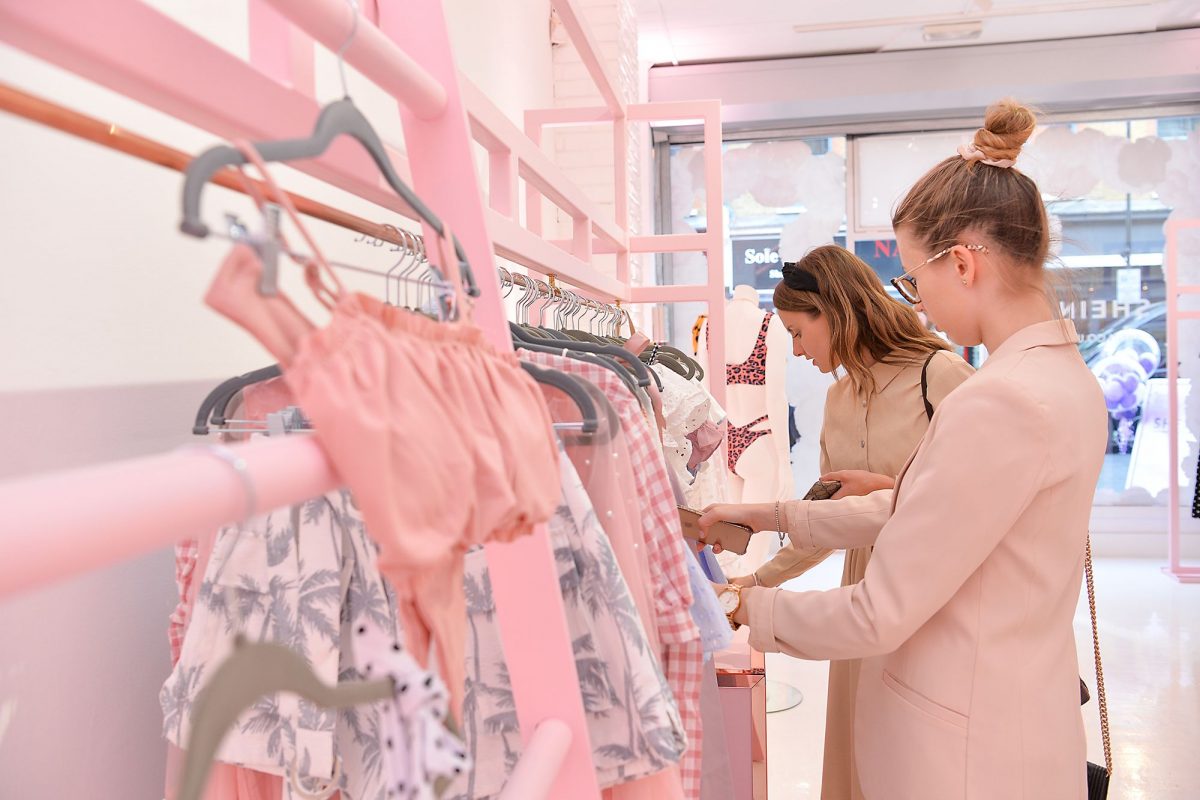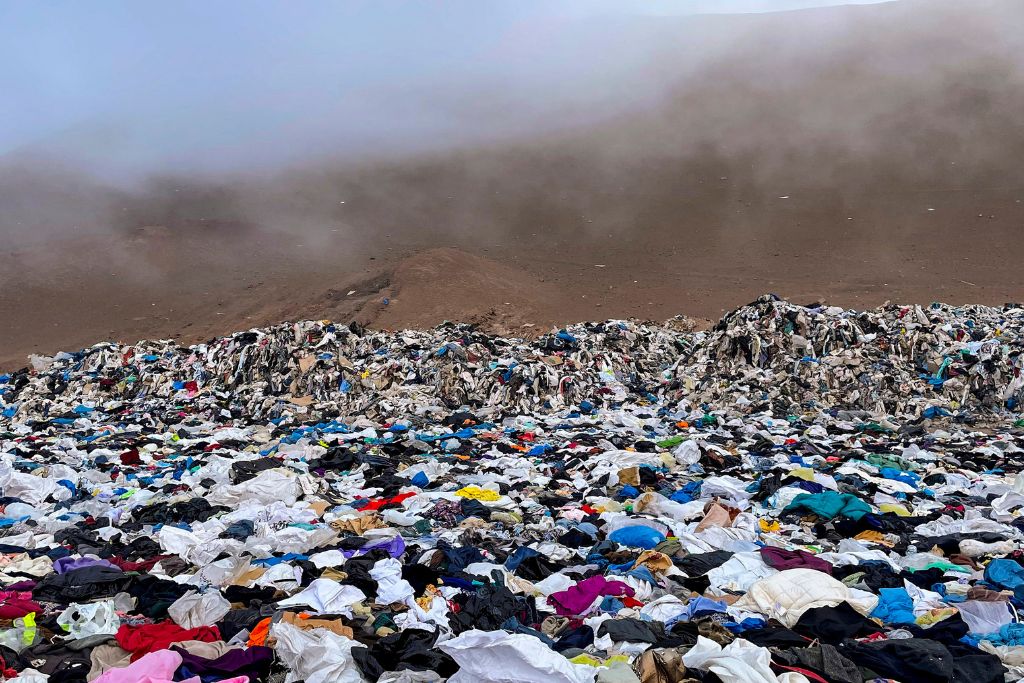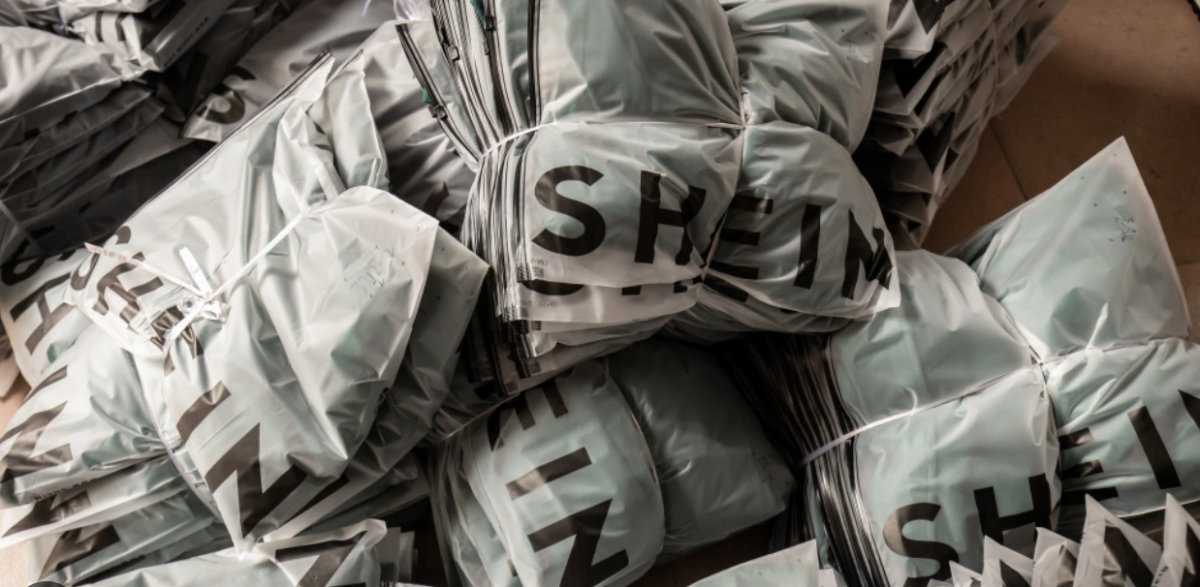Fast-fashion Chinese mega-brand, Shein, is collecting mass amounts of profits to produce its cheap clothes – with the cost, being our planet.

Founded in the city of Nanjing in 2008, entrepreneur and search engine optimisation specialist Chris Xu had no idea that his newest company would soon dominate the world. Shein went from being a low-cost Chinese apparel merchant to a global phenomenon in a few years. According to Bloomberg, the online fashion company went from $10 billion in sales in 2020 to a whopping $100 billion in 2022.
Point of Sale
The company’s focal point? The affordable prices, allowing it to ship to 150 countries worldwide. Shein is a sprawling marketplace, operating similarly to Amazon. It brings in around 6,000 clothing factories from China, under its label.

Pressure to keep up with continuously changing trends is capitalised on by thousands of celebrities – with large social media platforms and millions of followers. The enticement to buy new and trendy clothes is almost irresistible at these prices.
Aggressive marketing and advertising have led Shein to end the production of certain fashion items after only 10 days. Its model of manufacturing clothes in conjunction with the demand for them generates a staggering number of 10,000 new garments a day. Along with this, the constant timed markdowns shown to viewers in hours and minutes continue to perpetuate the idea that customers need to buy from them immediately.
Only 6% of Shein’s inventory remains in stock for more than 90 days depending on its popularity. It relies on third-party suppliers in China to produce small batches of around 50-100 trial items. According to Shein’s CEO Molly Maio, items that do well are mass-produced, and items that don’t are discontinued.
How Shein is Impacting the Planet

The fast fashion mega-brand is known to be environmentally depleting carved out a new category in ultra-fast fashion. With an increasing number of climate activists and people who care deeply about the future of the planet, Shein’s success is somewhat falling into a paradox.
Alongside its increase in popularity comes a poor social and environmental record. Shein was accused of controversial practices claiming to rip off designs from other labels.
According to Synthetics Anonymous 2.0, Shein’s use of virgin polyester and excessive oil consumption churns out the same amount of carbon dioxide as 180 coal-fired power plants. As a result, the company releases around 6.3 million tons of carbon dioxide a year, which contributes 10% of worldwide CO2 emissions.
Shein’s Working Conditions

Despite it all, Shein’s biggest controversy is the treatment of its workers who toil away in unethical Chinese factory conditions. An investigation led by Wired reported how both labourers and consumers suffered from the production of its clothing.
Further investigations from Swiss Watchdog Public Eye revealed accusations of violating labour laws. The group tracked Shein’s manufacturing and packing processes across both China and Europe. The investigations found that many were running informal factories set up in residential buildings.
Journalists found evidence that Shein employees were working in unsafe workshops. They were lacking basic safety protocols like emergency and window exists, worked without contracts and were receiving minimum wages.
The newfound documentary Inside The Shein Machine sent undercover cameras inside Shein factories. They filmed workers forced to pull 17-hour shifts with no breaks making 100 garments a day. Evidence from one factory found that employees made a daily rate of only $20, but a mistake would drop their pay down to $14.
“We know we have a responsibility to safeguard the welfare of workers in our supply chain. In light of the recent report in the news, we launched an investigation into the claim that 2 of our suppliers had unacceptable working conditions at their facilities.”
Shein explains, after news of the breaches got out.
The future of Shein…

Nonetheless, Shein continues to dominate the world, with sales made in Ireland, Iceland, France, Egypt, and China. Shein’s headquarters are now based in Singapore, manufactured away from China. New factories have opened in Turkey and Poland to make shipping easier for European customers.
Influencers supporting Shein faced criticism from environmental and workers’ rights organisations, with some deciding to part ways as a result.
21-year-old British influencer Georgia Portogallo released to her 200,000 TikTok followers that she would no longer work with Shein. She claimed that until their working conditions had changed, she would no longer promote their brand.
“I now know … that [Shein’s] staff are underpaid, they work too many long hours, they don’t get days off. The whole working conditions are horrendous,”
she tells her TikTok followers.
Subscribe to FIB’s Weekly Breaking News Report for your weekly dose of music, fashion and pop culture news!






